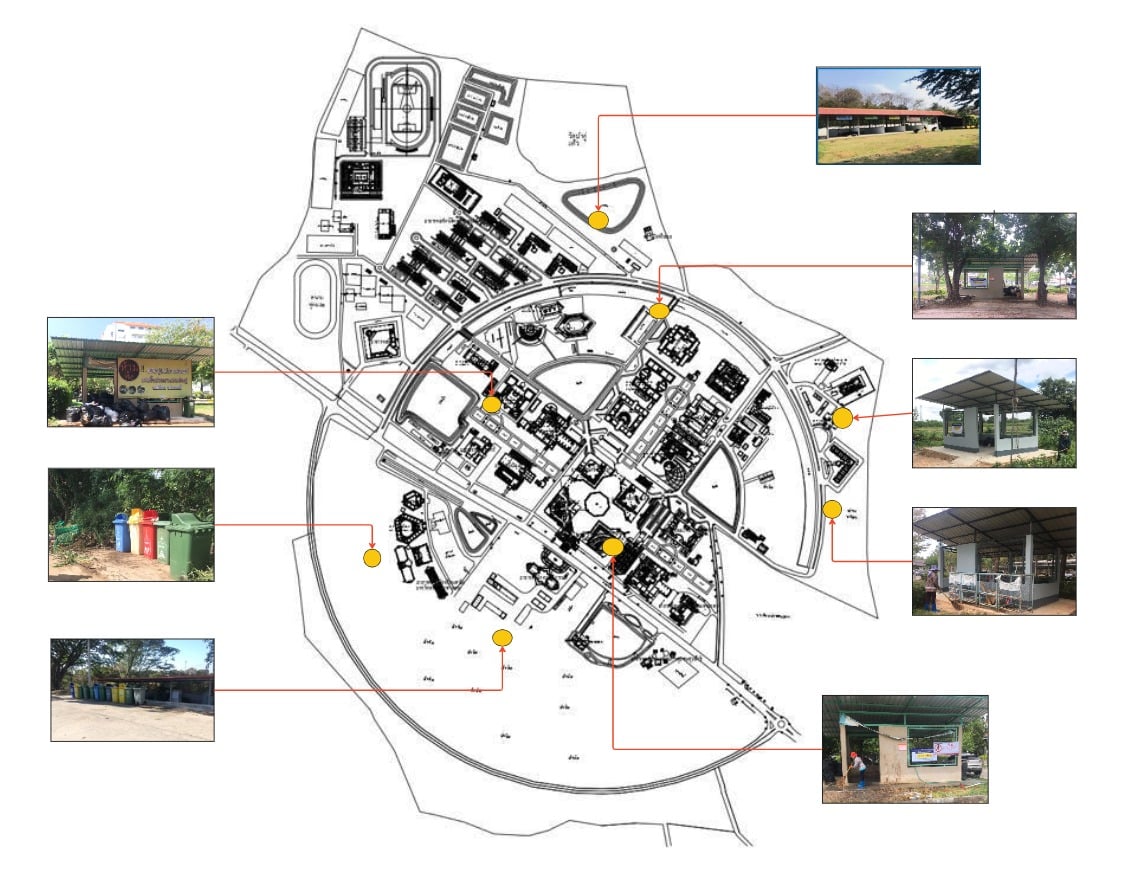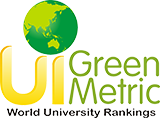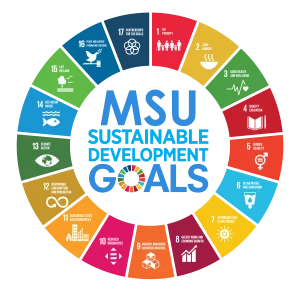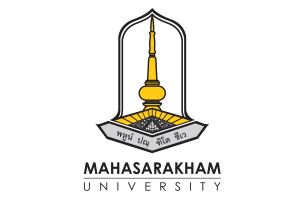Producing Organic Fertilizer from Leaf Waste: Cost-Efficient and Soil-Enriching
Shred leaves and grass into small pieces. Mix with manure, black rice husk ash, and finely chopped leaves and grass. Blend everything together well. Then, pile the mixture into rows with a thickness of no more than 15 centimeters. Water the pile with a bio-fermented solution and follow with regular water. Turn the pile once a week. Leave it to decompose for about 45-60 days. In the final step, compress the compost into pellets and use it as needed.
Once the compost starts decomposing, it will turn dark black, indicating that it is ready for use. It helps improve soil fertility by increasing organic matter, essential nutrients like nitrogen, phosphorus, and potassium, and beneficial microorganisms in the soil.

Waste Management at Maha Sarakham University
Currently, Maha Sarakham University generates a significant amount of waste in the form of branches and leaves from landscaping activities. The Waste Management Office has proposed the idea of adding value to this organic waste by converting it into organic fertilizer. This initiative aims to promote a comprehensive and efficient waste management system while also preserving the environment. Additionally, it supports the policy of becoming a Green University. The resulting fertilizer is rich in nitrogen and essential nutrients, making it suitable for growing various plants, including ornamental flowers, vegetables, and fruits.

Mahasarakham University adopts the 3R principle as a guideline for making the best use of existing resources. Can help reduce the amount of waste. By Reduce Reuse and Recycle. Starting with using less. Reduce the use of materials and products that create waste to reduce the amount of waste generated (Reduce), reuse materials and products that can still be used (Reuse), and reuse materials. Used products are processed to be reused or recycled (Recycle) by creating policies and various projects. In order for each faculty/unit to practice and promote participation from all parts within the university, the 3Rs are as follows:

Program to reduce the use of paper and plastic on campus

Waste Disposal Points for Trash Collection Vehicles
To ensure orderliness and reduce the spread of waste in the area, the university has established inorganic waste disposal points by considering the suitability of the locations. This helps prevent the occurrence of diseases from animals and insects attracted to waste and reduces pollution caused by improper waste disposal. The considerations are as follows:
- Choose locations that are easily accessible to people.
- Maintain distance from water sources to reduce the risk of water contamination.
- Ensure that trash collection vehicles can access the area easily.
- Provide clear signage regarding the types of waste that can be disposed of.
Clearly define the schedule for waste disposal to align with collection rounds and reduce the problem of leftover waste.


Mahasarakham University has a policy to reduce the use of plastic bags and paper since 2022 and has continued to practice it. Because there is a lot of plastic and paper bags being used. Especially plastic bags that take longer to decompose than other types of waste. The university has therefore issued guidelines to help reduce the use of plastic bags and paper on campus and will continue to practice them in 2023 as follows.
-
Project to reduce receiving, reduce giving, reduce use of plastic bags (MSU No Plastic)
-
Say no to plastic bag project
-
Ecolife program continues
-
Green Meeting
-
Bring Your Own Cup project: Get discounts and promote the use of personal drinking glasses.
-
Electronic Document System and use 2-sided paper
Online system

1) Wastewater from laboratories including the Faculty of Environment Laboratory, Faculty of Science Laboratory, Faculty of Technology Laboratory, Central Laboratory.
2) Wastewater from various buildings, including faculties/departments, student dormitories, personnel dormitories.
3) Wastewater from cafeteria including Talat Noi Cafeteria, Cafeteria Building D, Cafeterias in urban areas, Sutthawet Hospital Cafeteria, Secondary Demonstration School , Primary Demonstration School.
Maha Sarakham University collects and treats them using physical, chemical and biological processes to remove impurities in wastewater, including organic substances, acids, alkalis, solids, suspended solids, oil, fat, color, odor, and performs disinfection and measures water quality before use. By using water that has undergone treatment that does not exceed the specified standards to water trees and wash road surfaces.




